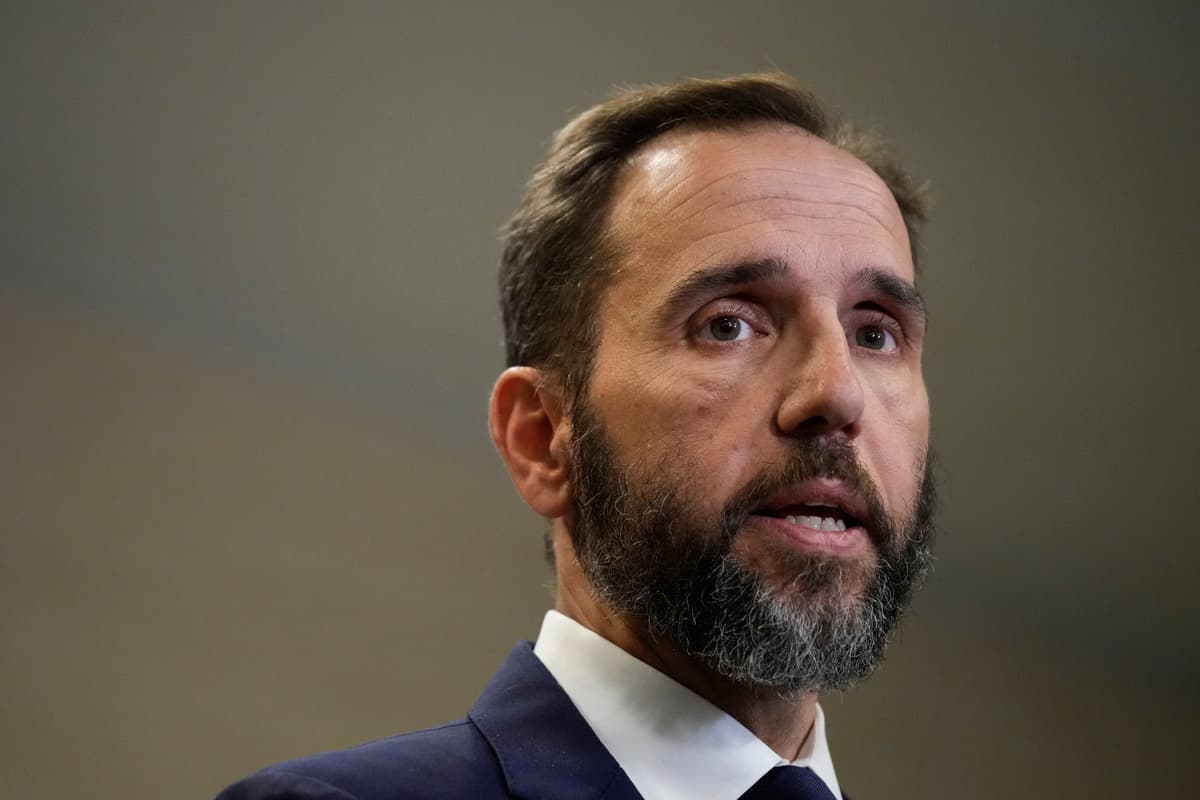Jack Smith and President Trump Clash Over Special Counsel’s 180-Page ‘Oversized’ Brief on January 6
The prosecutor previews an argument against immunity whose prolixity would cause Tolstoy to blush.

Special Counsel Jack Smith’s indication that his immunity brief will run more than 200 pages underscores the coming clash over whether President Trump can be tried for January 6.
The page count came in a brief to Judge Tanya Chutkan from Mr. Smith, who is prosecuting the 45th president in federal court at the District of Columbia for election interference and in South Florida for storing classified documents at Mar-a-Lago. The special counsel requests leave to file an “oversized motion.”
The January 6 case has been upended by the Supreme Court’s ruling in Trump v. United States that official presidential acts are presumptively immune. That drove Mr. Smith to generate a new and slimmed down indictment that retained his original four charges while coming in nine pages shorter than the original.
Now, though, Mr. Smith has to present Judge Chutkan with his argument for how his case can survive the protections of immunity. He writes that the “Government has substantially drafted its opening motion and estimates that the filed version will not exceed 180 pages.” He adds that “extensive footnote citations to an exhibit appendix increase the motion’s size by more than 30 pages.”
The special counsel acknowledges that he will require “leave to exceed the typical limit for a single motion,” which is 45 pages for opening motions and 25 pages for reply motions. He defends his prolixity by citing the Supreme Court’s order that Judge Chutkan “conduct a detailed, factbound, and thorough analysis of the Government’s case.” Mr. Smith reasons that a “comprehensive brief by the Government will be of great assistance” to Judge Chutkan.
Mr. Smith reports that he conferred with the Trump team before asking Judge Chutkan for permission to file his door stopper, and that the 45th president signaled his opposition. Trump contends that Judge Chutkan ought to first sift through a range of discovery motions before turning to immunity. Mr. Smith indicates that his brief will “contain a substantial amount of Sensitive Material,” some of it classified and in need of redaction if unsealed.
Earlier this month the special counsel alerted Judge Chutkan to the presence of a “Classified, Ex Parte, In Camera, and Under Seal Notice Regarding Classified Discovery.” That suggests that part of Mr. Smith’s case against Trump could rest on classified materials. The other criminal prosecution levied against Trump allegest more than two dozen Espionage Act violations for storing secret documents at his Palm Beach manse.
The prosecutor requests that Judge Chutkan rule expeditiously on his request to file a Tolstoy-esque brief because of the “extensive and time consuming logistics” that went into its production. The justices, Mr. Smith reminds Judge Chutkan, that the investigation into immunity “therefore must be fact specific and may prove to be challenging.” He casts the possible length of his brief as necessary to provide what the high court calls a “close analysis of the indictment’s extensive and interrelated allegations.”
Mr. Smith’s brief is due on September 26, with Trump’s response to be submitted in October. Any decisions that Judge Chutkan makes will be appealable to the the District of Columbia Circuit of the United States Court of Appeals and possibly to the Supreme Court. The Nine limit to not more than 50 pages the briefs they will consider.

